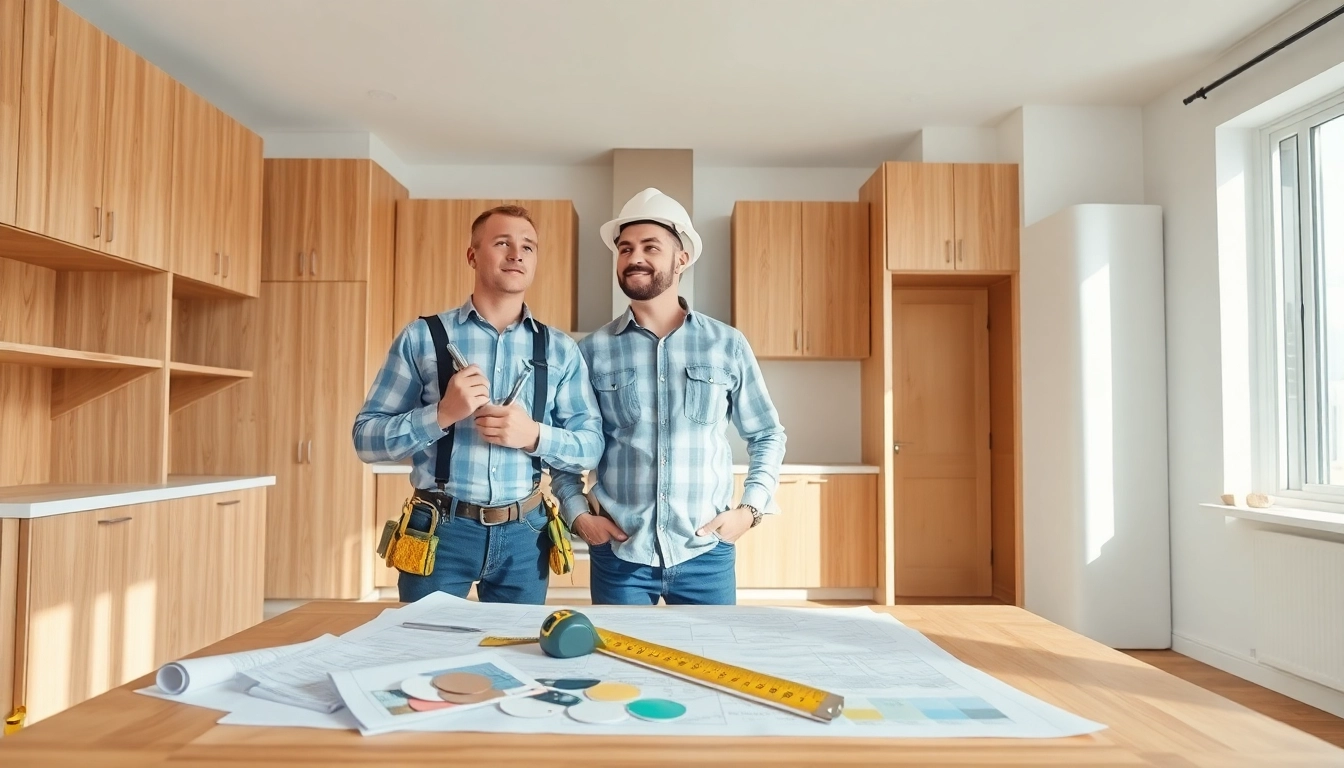Understanding Folding Partition Walls
What is a Folding Partition Wall?
A Folding Partition Wall is an innovative space management solution that allows for flexible room configurations. These walls are designed to divide large spaces into smaller, functional areas with minimal effort. Traditionally constructed with hinges, they can be folded away when not in use, maximizing the usability of a space. Folding partition walls are commonly made from materials such as wood, metal, glass, or fabric, and are available in various styles and colors to suit different interior designs.
Materials and Design Options
The versatility of folding partition walls begins with their materials. Common materials include:
- Wood: Provides a classical aesthetic and robust durability, perfect for office interiors and upscale residential settings.
- Metal: Ensures strength and stability, often used in commercial environments due to its resilience.
- Glass: Allows for natural light to flow between spaces, making it ideal for modern offices and conference rooms while maintaining a sense of openness.
- Fabric: Offers ease of installation and a softer appearance, often used in temporary setups such as events or exhibitions.
Design options can vary from simple accordion styles to more complex sliding systems, with numerous finishes available to cater to different aesthetics. Custom designs are also an option, where businesses can create a distinct look that reflects their brand identity.
Benefits of Using Folding Partition Walls
Folding partition walls provide numerous benefits that make them an attractive choice for both commercial and residential applications:
- Space Optimization: They allow for the effective use of space by easily creating separate areas without permanently altering the layout.
- Flexibility: Adjust the configuration based on current needs; for example, merging spaces for large gatherings or dividing rooms for privacy during meetings.
- Cost-Effectiveness: Folding partitions can be less expensive than building permanent walls. Their versatility also means that fewer structural changes are needed.
- Acoustic Control: Many options include soundproofing capabilities, which is critical for environments like offices and conference rooms.
- Ease of Installation: Most folding partition systems can be installed with relative ease, minimizing downtime in commercial settings.
Applications of Folding Partition Walls
Folding Partition Walls in Commercial Spaces
In commercial environments, folding partition walls are exceptionally beneficial for creating multipurpose rooms. For example, offices can utilize them to transform conference rooms into smaller breakout spaces. This flexibility allows businesses to maximize productivity and adapt to changes in team sizes or project needs. Additionally, venues like hotels can incorporate these partitions to create separate areas for events such as weddings, trade shows, or corporate gatherings, enhancing overall functionality.
Residential Uses for Folding Partition Walls
In residential settings, folding partitions can redefine living spaces. Homeowners may wish to create separate zones for work and relaxation or for children’s play areas. Features such as sound insulation can enhance privacy while maintaining an open floor plan. Additionally, in compact urban apartments, these walls allow for space efficiency, giving families the ability to adjust their living environments to accommodate guests, hobbies, or changing needs.
Event Spaces and Temporary Solutions
Event planners frequently turn to folding partition walls for their adaptability. Whether at festivals, trade shows, or corporate events, these partitions can quickly divide open spaces into functional areas such as lounges, workshops, or exhibition booths. Their ease of setup and breakdown makes them a practical choice for temporary layouts, allowing for efficient use of space during dynamic events.
Choosing the Right Folding Partition Wall
Factors to Consider
When selecting the right folding partition wall, several factors should be taken into account to ensure a perfect fit for your needs:
- Purpose: Determine the primary function, such as privacy, sound insulation, or space division.
- Frequency of Use: For walls that will be adjusted frequently, consider durability and ease of use in the design and installation.
- Acoustic Properties: For commercial spaces requiring confidentiality, prioritize options with soundproofing features.
- Design Aesthetics: Choose materials and colors that complement your interior design and branding.
- Space Constraints: Assess dimensions and ensure the option selected will operate efficiently within the designated area.
Custom vs. Standard Options
Folding partition walls come in both standard and custom options. Standard options may suffice for most residential uses or less complex commercial environments. However, for unique layouts or specialized needs, custom options provide tailored solutions that conform precisely to your specifications. Ultimately, the choice depends on specific requirements, budget, and desired aesthetic.
Budget Considerations
The budget is vital when selecting a folding partition wall. Various factors influence costs, such as materials, size, and features like soundproofing. Custom designs tend to be more expensive but may offer long-term benefits through enhanced functionality and aesthetics. It’s advisable to gather multiple quotes and consider the total lifecycle cost, including installation and maintenance, to get a comprehensive understanding of financial commitments.
Installation and Maintenance of Folding Partition Walls
DIY Installation Tips
For those opting for a DIY installation, careful planning is essential. Start by reading the manufacturer’s guidelines thoroughly. Ensure you have the right tools, such as a level, drill, and measuring tape. Proper measurement of the space is crucial; inaccuracies can lead to installation challenges. It’s also advisable to have an extra set of hands during installation, as folding partitions can be heavy and awkward to maneuver alone.
Professional Installation Services
If you’re uncertain about the installation process or if you have a larger project, hiring a professional service is recommended. Experienced installers can ensure that the walls operate correctly and are installed with minimal disruption to your environment. They can also provide insights into maintenance and optimizations that may not be apparent during a DIY installation.
Maintenance Best Practices
Regular maintenance ensures the longevity of your folding partition walls. Basic care involves cleaning the surfaces with appropriate cleaners based on the materials used. For moving components, lubricating hinges and checking for wear and tear are crucial to ensure smooth operations. Regular inspections can help catch any issues before they become more significant problems, which could require costly repairs.
Future Trends in Folding Partition Walls
Innovative Technologies
As technology progresses, the design and functionality of folding partition walls are evolving. Innovations such as automated systems that can switch between open and closed configurations with a remote control are becoming increasingly common. Smart technologies that integrate with building management systems to optimize space based on real-time usage data are also emerging trends.
Eco-friendly Solutions
The shift toward sustainability is influencing the production of folding partition walls. Manufacturers are increasingly using recycled materials and designing products that minimize waste during construction. Additionally, energy-efficient options, such as those offering enhanced insulation, can contribute positively to building energy management.
Trends in Design and Aesthetics
Trends are shifting toward customization and aesthetic appeal, with interior designers increasingly recognizing the importance of visually appealing partitions. Minimalistic designs and the blending of functionality with art are defining current aesthetics. Users are also demanding bespoke designs that reflect personal style or brand identity while maintaining the versatility to adapt to changing needs.



